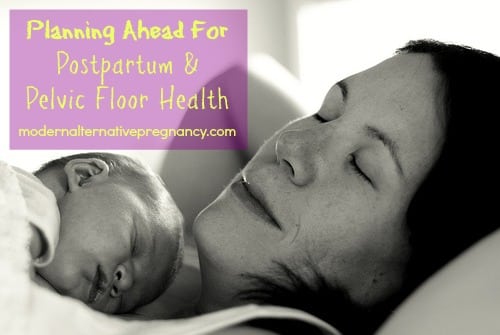Image by footloosiety
By Hannah Landis, Contributing Writer
Confession: during my third trimester with my third child I let myself become consumed with worry about how I would take it easy in the postpartum period.
Like most women, I *knew* that I should take it easy, but it is one thing to know that and another to do it while you have a still-in-diapers 2-year-old and a busy, inquisitive 4-year-old when you deliver your newborn.
Everything turned out ok – my seriously incredible husband patiently waited on me and the kiddos, and kept the house pretty clean while I spent time healing and nursing our new daughter. People from our church brought a procession of meals, which was a huge help.
In my doula practice I have found that it is a common thing to wonder – why take it easy postpartum? Sometimes women actually feel great and energized after pregnancy. But there are many reasons for slowing down for a few weeks instead of starting new projects and getting back to the business of life-as-usual. There are many reasons, but the one I want to talk about right now is the very important, pelvic floor.
What is the pelvic floor?
The pelvic floor consists of the muscles and ligaments that hold all of your insides up! Pregnancy and birth can weaken them. And after that, some crazy stuff can happen. After I had my second child I found out my bladder had partially prolapsed (which has since healed). I won’t provide the details here, but you can see for yourself what is involved . Can you say alarming? Some estimate close to half of women over fifty have some degree of prolapse. Clearly it’s common.
But obstetricians and midwives don’t always give advice on how to heal a prolapse and prevent future problems. So here are some things I have found in my own practice that are helpful to women in the immediate few weeks postpartum:
Lie Down
This will help you avoid even gentle impact on your pelvic floor. Standing allows gravity to keep pulling things down, down, down! Get gravity out of the equation so that your body can have some time to just rest and heal. You just grew and delivered a baby. It’s ok to take it easy.
The wisest recommendation I’ve heard is one week IN bed, one week AROUND your bed, and two more weeks AROUND your house, off your feet as much as you can.
Very Light Activity
After this, some exercise is ok, but definitely not lifting weights or running, or anything else with a strong impact on your pelvic floor, unless you have been checked out by a specialist and determined to have a recovered pelvic floor and no degree of prolapse. Start with short, easy walks and pay attention to your body. It will tell you if you need to back off even from that.
Actually, every new mom would also benefit from seeking out a pelvic floor physical therapist if at all possible, but especially if she is experiencing any problems with:
- Incontinence (even minor)
- Painful sex
- Pain standing for long periods
In France the government provides pelvic floor physical therapy for EVERY new mom. They know that it saves money on pelvic floor surgery later. (At least 11% of women end up having pelvic floor surgery in their lifetimes!)
But who is going to take care of you and make sure you actually stay off your feet? We are talking about a woman who has just done the equivalent of running a marathon and now has a nursing-round-the-clock newborn that requires up to 800 extra calories a day. When you **need** a midnight snack, who is going to get up and get it for you? Who will get the baby new diapers and clothed? Who will care for you as you care for your newborn?
Plan Ahead of Time
Planning ahead of time to take it easy when the baby comes is extremely helpful in preventing postpartum problems. Here are some things that can be done before baby is born that will allow you to get more rest postpartum:
- Prepare several freezer meals and/or ask for those as gifts
- Gather all baby supplies in one place to make it easier for someone else to get what baby needs
- Gather all of your supplies (nursing pads, postpartum tea, etc.) in one place for the same reason
- Wash and arrange cloth diapers and all diaper-related supplies near changing area
- Hire a postpartum doula and/or arrange for friends and family to help you after baby comes
- Plan to rest by gathering books and movies that you’ve been looking forward to read/watch (Then just sit and read or watch them when baby comes)
Ok, I think I’ve made my case that you really must consider staying off of your feet for a couple of weeks, minimum. Enjoy your babymoon, let your body heal, focus on breastfeeding.



I love this post. I think too many of us expect ourselves to be back to normal right away. “Back to normal” impresses our friends and family and makes us feel a little more like ourselves, but it doesn’t make much sense! With my second, I was really concerned about getting enough rest just the first week, since I knew my husband would be going back to work after one week, and it was difficult because I felt I had to fight for that rest. I also remember feeling swollen, and I bet it would have been better if I had stayed in bed more. This is great information that shows the needed rest can truly serve a specific medical purpose, instead of just having an inner knowledge that we should be able to rest after birth.